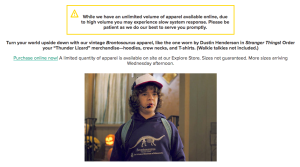Chalk up another court victory for the National Federation of the Blind (NFB). A Feb. 1 ruling by the U.S. District Court for the Northern District of Texas, Dallas Division, declared unconstitutional a law requiring certain disclosures when soliciting charitable donations of goods by telephone, mail or receptacles.
NFB of Texas challenged state Attorney General Greg Abbott’s office regarding the law that made professional resellers reveal their identity, disclose items donated would be sold for profit, and the percentage of proceeds or fees would go to charity. Errol Copilevitz, a partner in the Kansas City law firm Copilevitz and Canter, was lead counsel for the NFB of Texas. “This was an important decision because it protected the right of smaller organizations that use outside agencies to assist them and these kinds of appeals would be free of unconstitutional restrictions. We have seen other legislation in other jurisdictions in varying forms that continue to be a concern,” he said.
There are several states that have various forms of registration and restrictions but none had ever gone this far, Copilevitz said. In his four-page decision, Senior U.S. District Judge Royal Ferguson said the only part of the law that was constitutional was the requirement to identify who operates the donation receptacle and the charity that is to receive the proceeds. The judge’s 27-page order granting and denying in part motions for summary judgment by both sides cited the landmark Riley v. NFB decision of 1988.
“The Riley court observed that the disclosure requirements would ‘almost certainly hamper legitimate’ fundraising by professionals on behalf of charitable organizations. Disclosure requirements would discriminate against small or unpopular charities that use professionals out of necessity, while larger charitable organizations could absorb the costs internally to avoid the disclosure requirements,” the judge wrote. The judge also incorporated the Supreme Court’s decision in Citizens United v. FEC — only 10 days old at the time — writing “the 1st Amendment does not allow political speech restrictions based on a speaker’s corporate identity.”
“Legal work by both sides has been exemplary,” the judge added. The Texas AG’s office had argued the rule is not an unconstitutional restriction on protected free speech, but is regulated and is commercial speech entitled only to “intermediate scrutiny.” Further, the state argued the act is “narrowly tailored because it only regulates a particular class of donations that the legislature found to be particularly susceptible to fraud.” It was not known at deadline if the state would appeal the decision.
The Baltimore-based National Federation of the Blind has about 700 local chapters and 52 affiliates nationwide, with a membership of 50,000. NPT











